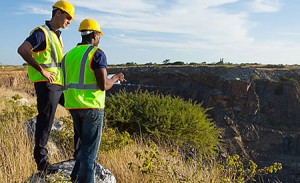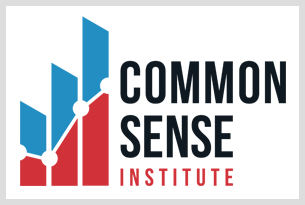 FOR IMMEDIATE RELEASE:
FOR IMMEDIATE RELEASE:
March 27, 2014
DENVER—A study using a calibrated dynamic economic modeling system developed by Regional Economic Models Inc. (REMI) shows that a statewide fracking ban would result in 93,000 fewer jobs, $12 billion in lost gross domestic product (GDP) and an annual reduction of $985 million in tax revenue for local and state governments between 2015 and 2040.
The REMI model analyzes the ripple effects of public policy scenarios on jobs and the economy. According to the study, compared to the baseline scenario, a fracking ban beginning in 2015 would result in an average $8 billion less in GDP and 68,000 fewer jobs in the first five years alone. Over the long run (2015-2040), GDP would be lower on average by $12 billion (2.6 percent) and employment would be down by 93,000 (2.2 percent) jobs.
The study also finds that a statewide fracking ban would cost local and state governments $567 million per year in lost annual tax revenues for each of the first five years, and $985 million annually on average through 2040.
The study reveals the many indirect economic impacts of a fracking ban including negative impacts to sectors that supply the energy industry with equipment and benefit from the income of the professionals who work in it. The large impact on jobs is indicative of the far-reaching supply chain in Colorado that provides the industry with goods and services. The negative impact on disposable personal income places drag on consumption-supported industries, such as retail and real estate, as well as on taxes.
This study was modeled beginning in 2015, assuming a 95 percent reduction in new activity and continued legacy production from existing wells. The study incorporates the steep depletion rates for oil and gas production observed in Colorado historical data going back to 1970.
Hydraulic fracturing or “fracking” is a process used to stimulate oil and natural gas wells to produce more energy. Fracking has been used in the United States for more than 60 years and more than 90 percent of all wells today are “fracked.” Although 87 percent of oil and gas activity in Colorado is concentrated in just five counties in Colorado, the employment and tax impacts are much more widespread. The five largest-producing counties represent 35 percent of upstream and midstream employment, the 31 smallestproducing counties represent 29 percent, and the 28 nonproducing counties account for 36 percent.
Likewise, while industry taxes have the greatest impact on local government spending, the industry also pays taxes that flow to the Colorado general fund, which is then spent on everything from education to infrastructure in the state of Colorado. Hence, quelling oil and gas activity would have far-reaching consequences on the economy, including employment, wages, and taxes.
The study, conducted by the Business Research Division (BRD) of the Leeds School of Business at the University of Colorado Boulder on behalf of a partnership between the Common Sense Policy Roundtable (CSPR), the Denver South Economic Development Partnership (Denver South EDP) and the Metro Denver Economic Development Corporation (Metro Denver EDC), provides the first major analysis of 2014 using the new economic tool in Colorado.
This paper was prepared using the REMI Tax-PI model built for Colorado and calibrated with Colorado revenues, expenditures, employment, and population. Researchers from the BRD examined the known, quantifiable industry metrics, ranging from production and prices to employment, wages, and taxes. This paper does not model events or impacts, if any, on water, air quality, health, or externalities on quality of life. Nor does the paper analyze the signal sent to the oil and gas industry and other industries in Colorado regarding uncertainty and political risk to doing business in the state.
# # #
Contacts
Tom Clark, Metro Denver EDC
(303) 620-8092
tom.clark@metrodenver.org
Tim Pollard, CSPR
(303) 916-5450
trpollard@aol.com
Mike Fitzgerald, Denver South EDP
(303)792-9447 ext105
mike@denversouthedp.org
Brian Lewandowski, Leeds BRD
(303) 492-3307
brian.lewandowski@colorado.edu

